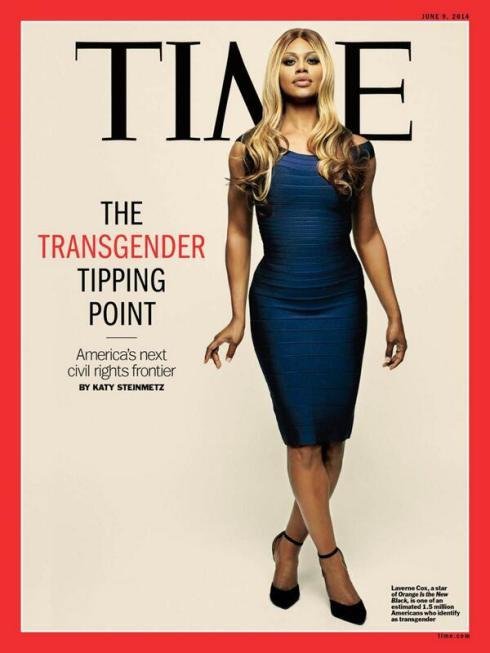Actress and transgender activist Laverne Cox appears on the June 9, 2014 cover of TIME magazine.
NEW YORK, May 29 (UPI) -- Laverne Cox is perfectly happy with who she is.
The actress and advocate appears on the cover of TIME's June 9 issue, and opened up to the magazine about her experience as a transgender woman. Cox portrays Sophia Burset, a transgender woman incarcerated in a women's prison, on The Netflix series Orange is the New Black, and her role and real-life advocacy have helped to create dialogue about trans issues in the public sphere.
Cox first began to identify as female when she was a young child. She used to associate her feelings "with being some sort of degenerate, with not being successful," and says she was "very isolated" and repeatedly bullied in school. Awareness of LGBTQ issues has grown in recent years, but the actress is careful to point out, "There's not just one trans story. There's not just one trans experience."
"Not everybody who is born feels that their gender identity is in alignment with what they're assigned at birth, based on their genitalia," she relates. "If someone needs to express their gender in a way that is different, that is okay, and they should not be denied healthcare. They should not be bullied. They don't deserve to be victims of violence."
"We have to listen to people," she asserts. "Folks want to believe that genitals and biology are like destiny! ... People need to be willing to let go of what they think they know about what it means to be a man and what it means to be a woman. Because that doesn't necessarily mean anything inherently."
Cox says she is "absolutely" a happy person now, and "couldn't imagine" her life if she were "still in denial or lying" about her gender identity. She recognizes there are "hardships" and "a lot of struggles still," but hopes rising societal awareness will allow others to live openly without fear of discrimination.
"We are in a place now where more and more trans people want to come forward and say 'This is who I am,'" the actress reports. "More of us are living visibly and pursuing our dreams visibly, so people can say, 'Oh yeah, I know someone who is trans.' When people have points of reference that are humanizing, that demystifies difference."
"Social media has been a huge part of it, and the Internet has been a huge part of it," she acknowledges. "We're able to have a voice in a way that we haven't been able to before."















